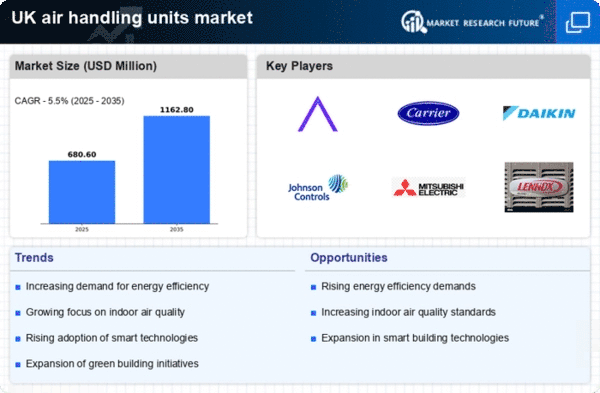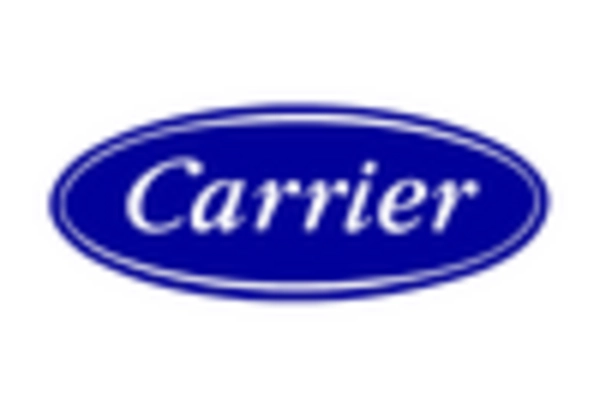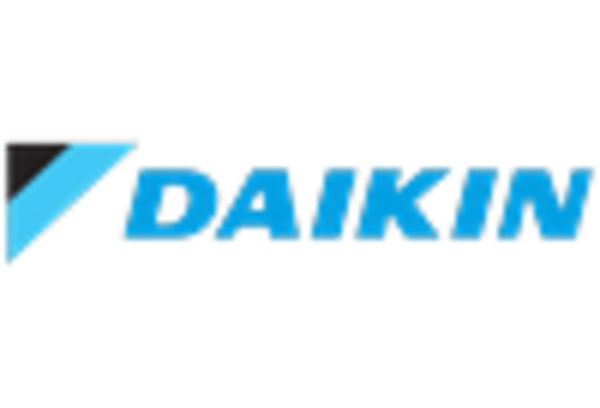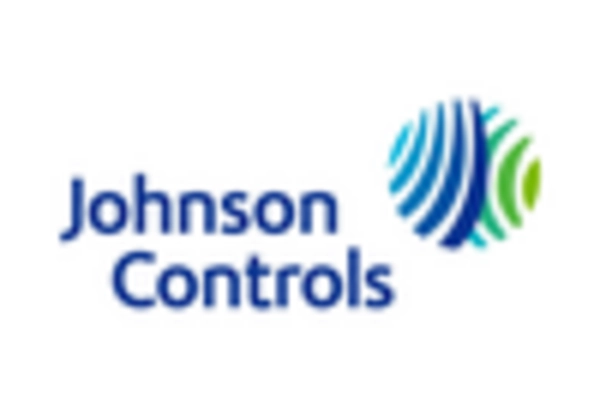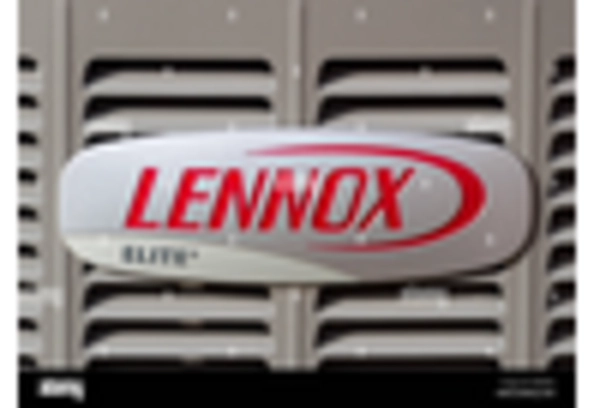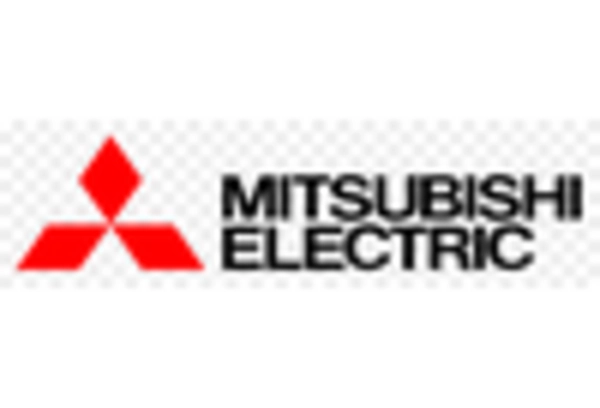Regulatory Compliance and Standards
The air handling-units market is increasingly influenced by stringent regulatory compliance and standards set by the UK government. These regulations aim to enhance energy efficiency and reduce carbon emissions in buildings. As a result, manufacturers are compelled to innovate and produce units that meet these standards, which often leads to higher operational costs. The market is projected to grow as companies invest in compliant technologies, with an estimated increase of 15% in demand for energy-efficient units by 2027. This regulatory landscape not only drives innovation but also ensures that the air handling-units market aligns with the UK's broader environmental goals.
Rising Demand for Indoor Air Quality
The growing awareness of indoor air quality (IAQ) is a significant driver for the air handling-units market. With increasing concerns about health and well-being, particularly in commercial and residential spaces, there is a heightened demand for systems that can effectively filter and circulate air. The market is expected to see a surge, with a projected growth rate of 10% annually as consumers prioritize air quality. This trend is further supported by studies indicating that improved IAQ can enhance productivity and reduce health-related costs. Consequently, manufacturers are focusing on advanced filtration technologies, which are becoming essential in the air handling-units market.
Technological Advancements in HVAC Systems
Technological advancements play a crucial role in shaping the air handling-units market. Innovations such as variable air volume systems, advanced control systems, and energy recovery ventilators are becoming increasingly prevalent. These technologies not only enhance energy efficiency but also improve the overall performance of HVAC systems. The market is likely to experience a compound annual growth rate (CAGR) of 12% over the next five years, driven by the integration of these advanced technologies. As manufacturers continue to invest in research and development, the air handling-units market is expected to evolve, offering more efficient and user-friendly solutions.
Shift Towards Sustainable Building Practices
The shift towards sustainable building practices is a pivotal driver for the air handling-units market. With the UK government advocating for greener construction methods, there is a growing emphasis on energy-efficient systems that minimize environmental impact. This trend is reflected in the increasing adoption of renewable energy sources and sustainable materials in building projects. The market is anticipated to grow by 9% as more developers seek to comply with sustainability certifications. This shift not only enhances the appeal of properties but also positions the air handling-units market as a key player in the transition towards a more sustainable built environment.
Growth in Construction and Renovation Activities
The air handling-units market is significantly impacted by the growth in construction and renovation activities across the UK. As urbanization continues to rise, there is an increasing need for efficient HVAC systems in new buildings and retrofitting existing structures. The construction sector is projected to expand by 8% annually, which directly correlates with the demand for air handling units. This growth is further fueled by government initiatives aimed at promoting sustainable building practices. Consequently, the air handling-units market is poised for expansion, as more projects incorporate advanced air handling solutions to meet modern standards.


